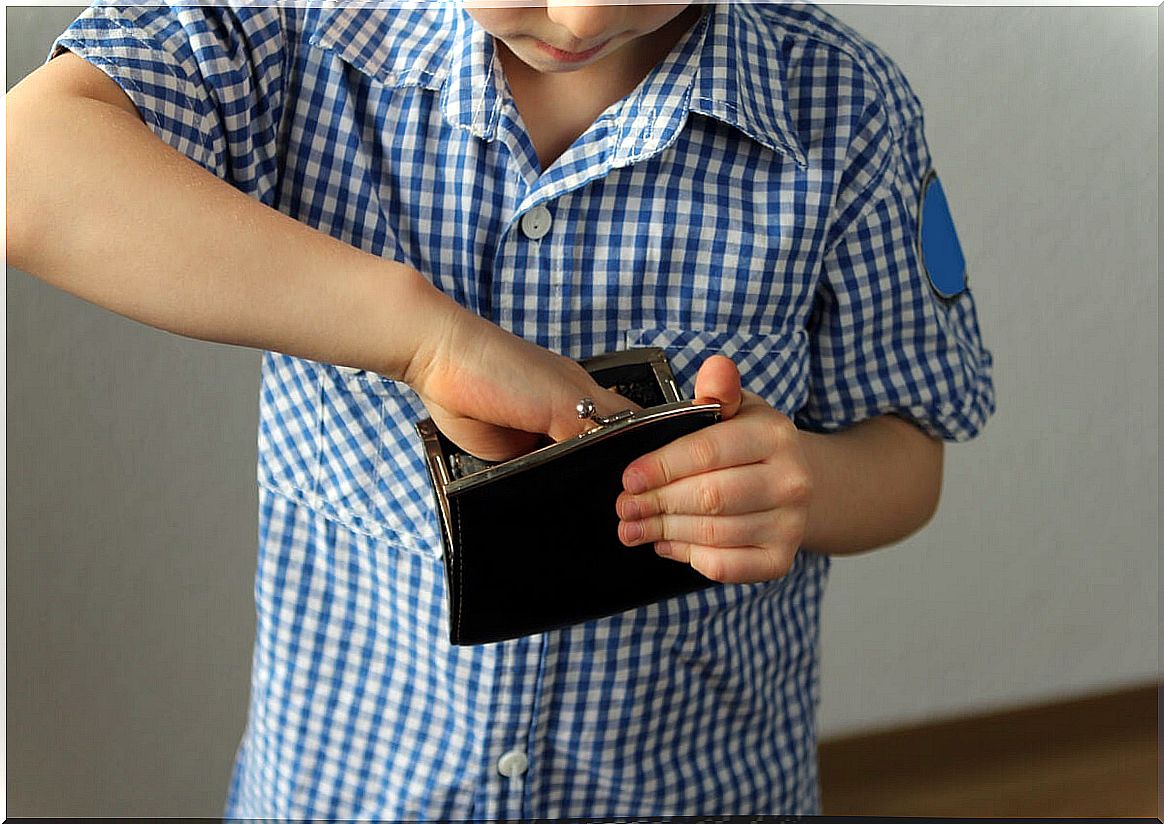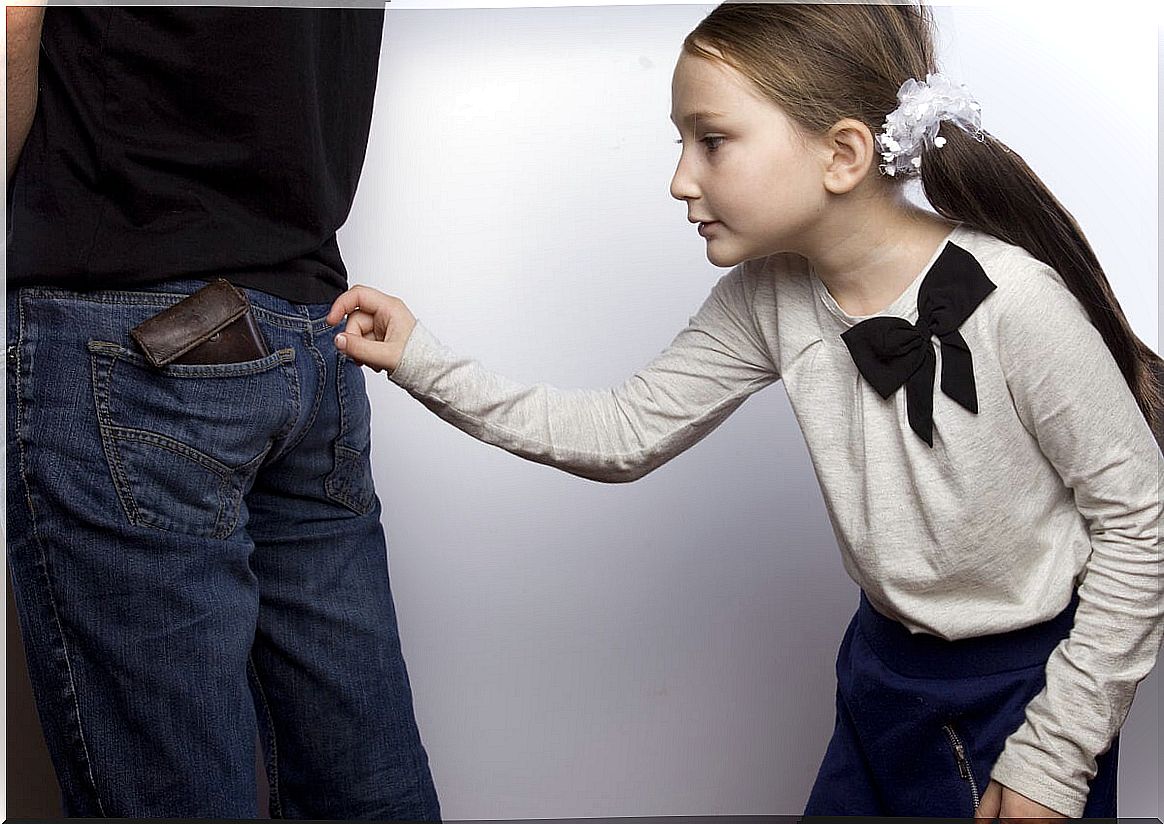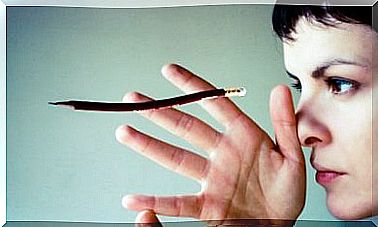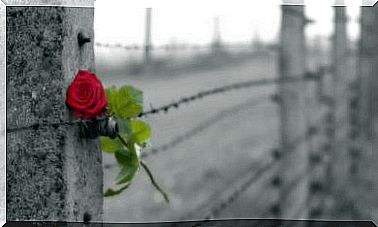A Child Who Steals, How To Approach The Situation?

A child who steals often causes his parents great annoyance, but also concern and even alarm. It is important to remember that it is a child and that is why it is not good to rush to conclusions. He is a person who is in the process of training and who, in most cases, has only given in to an impulse.
It is clear that it is a behavior that cannot be let go without further ado. It is very important that parents guide a child who steals so that they understand why their action is not acceptable. Likewise, in some cases it is necessary to dig deeper and investigate what may be behind this behavior.
Most children are left with something that does not belong to them at some point. They do it in a naive way and their behavior does not project a future delinquent. A child who steals, generally, only does it because something attracts him and he does not believe that it is serious to appropriate it. However, this is a situation that must be addressed.

A boy who steals
Age is important at this point. Before the age of 6, children have many doubts about the concept of property, especially with regard to the property of others. This is because in those ages the child is very egocentric; a natural positioning in front of the normal world in relation to the evolutionary moment through which they are passing.
Therefore, the child only takes into consideration his own wants and needs. A child who steals before the age of 6 should not be punished, as he will not understand very well why his behavior is negative. What we can do is explain why you shouldn’t do it.
On the other hand, the child over 6 years of age already usually works with a less rudimentary concept of private property. Therefore, if you do so, you should receive some kind of sanction and a clear setting of the limits that you should not exceed. The indicated thing is to carry out these actions:
- Stay calm and handle the situation calmly.
- Confront the situation immediately. Never “leave it that size”, postpone the matter or minimize the situation.
- Apply consequences. This behavior generates effects that the child must face. It is not enough to point out that what you did is wrong.
Why does a child steal?
A child who steals, in most cases, only gives in to temptation. However, there are also some factors that become stimuli or triggers for this situation. For example, if a child takes something that does not belong to him and the parents do not educate his behavior, they could be reinforcing it.
Likewise, we must not forget that children tend to imitate what they see in adults. If the child sees that we also “steal” -example, take material from the office for home-, it is likely that he ends up imitating us -example, taking material that is from school-.
It is also the case of children in whom the parents do not have enough money to satisfy the material desires of their child. Sometimes they have to give up a very intense desire to have something that attracts their attention and they don’t get it, so they steal. Likewise, there are times when their peer group steals and they act like this to feel integrated.

Theft and lack
Of course, there are also cases in which more complex psychological aspects come into play in theft. In this regard, there is an interesting explanation offered by Donald Winnicott, who establishes a direct relationship between antisocial behaviors and emotional deprivation during childhood.
Winnicott points out that, when faced with emotional deprivation, the child usually chooses one of two alternatives: either he annihilates his true self, or he convulses society until he obtains protection from it. Deprivation is a state in which the child feels deprived of the care of the family.
Lustgarten de Canteros says that, in these cases, antisocial behavior “is a call to be registered by the other, constituting a search for the home care that he feels he has lost. ” Therefore, before imposing sanctions or limits on a child who steals, it is also important to ask yourself if the child is receiving the attention and affection that he or she needs.









